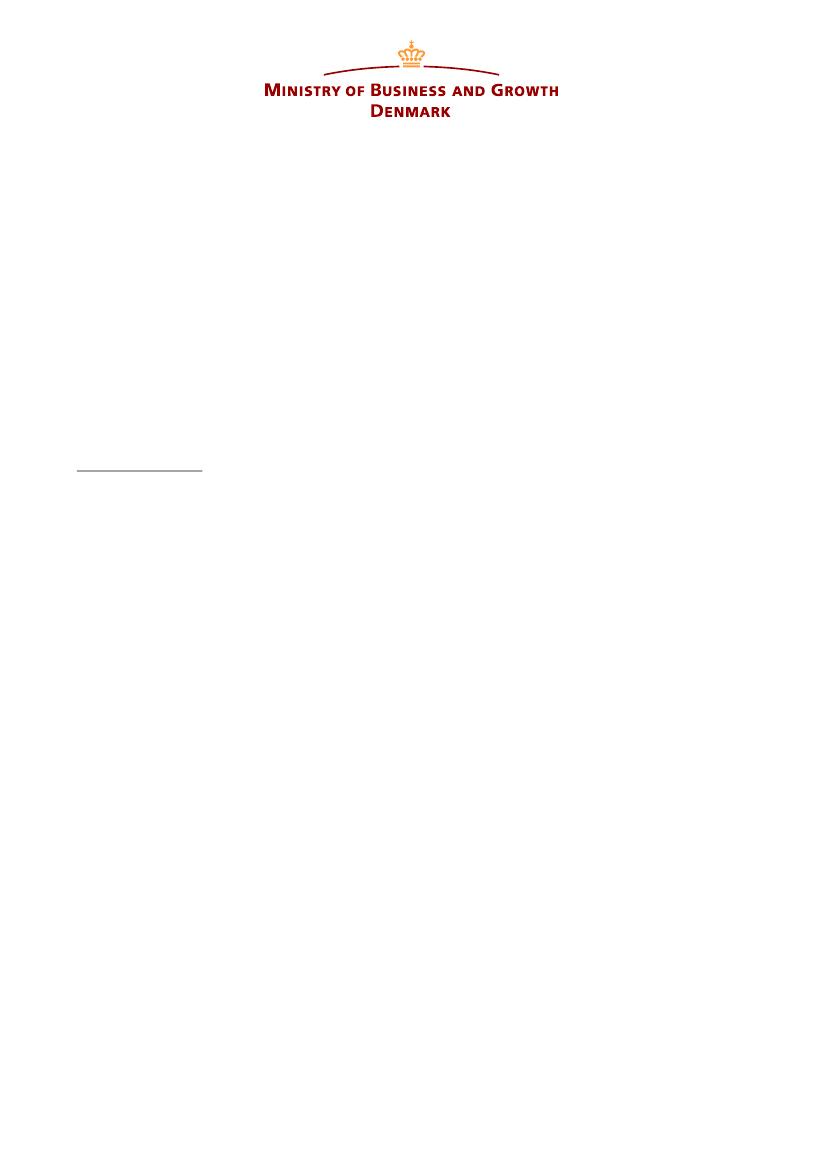
NOTE
Consultation on Smart Regulation: Response from the Danish Gov-
ernment
The Danish Government thanks the European Commission for this oppor-
tunity to comment on the progress made within the Smart Regulation
agenda in the EU.
General comments
Overall, the Danish Government supports that there is a high level of am-
bition within the smart regulation agenda in the EU. It is crucial for
growth and employment in Europe that there are good framework condi-
tions for European businesses. Therefore, it is important that the EU
works towards making the every-day life of businesses easier. Efficient
public service and regulation must ensure that businesses spend their time
on running their business and not on unnecessary administrative work
and bureaucratic processes. However, burdens on businesses should not
be reduced by moving them over onto public authorities. It is important to
find genuinely simpler measures for the economy as a whole.
The Danish Government supports that smart regulation efforts are based
on a balanced approach and focus on enhancing the quality of regulation.
An enhanced quality of regulation provides easy and smooth administra-
tion in businesses and increases their compliance which in turn leads to
higher fulfilment of policy objectives. The Danish Government empha-
sises that regulatory burdens should only be reduced in cases where it
does not lead to a reduction of the fundamental protection levels in the
regulation, especially within the area of occupational health and safety.
The Danish Government takes for granted that the role and competence
of the Advisory Committee for Safety and Health at Work are not com-
promised by smart regulation efforts.
The Danish Government supports that the efforts towards reducing regu-
latory burdens in EU regulation are broadened and encompass a focus on
the end-users of regulation and their perceived burdens and that this focus
will be the guiding principle for all smart regulation efforts in the EU.
The focus on the rules themselves needs to be supplemented with a focus
on how the rules are communicated, implemented, enforced and fit into
the every-day administrative practices of businesses. These aspects define
just as much the businesses’ challenges in their relationship with public